![]()
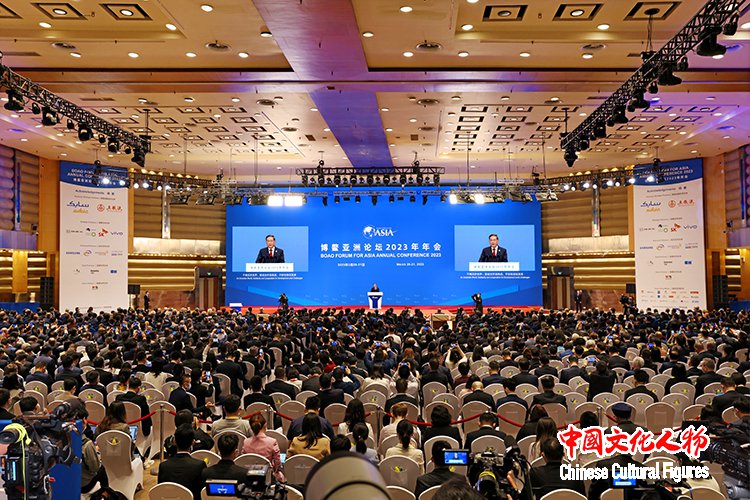
From March 28 to 31, 2023, the Boao Forum for Asia (BFA) Annual Conference 2023 was held in Boao, south China’s Hainan Province. About 2,000 government officials, business leaders and think tank scholars from more than 50 countries and regions attended.
Wang Baosheng, Editor-in-Chief of Chinese Cultural Figures/Photo Report
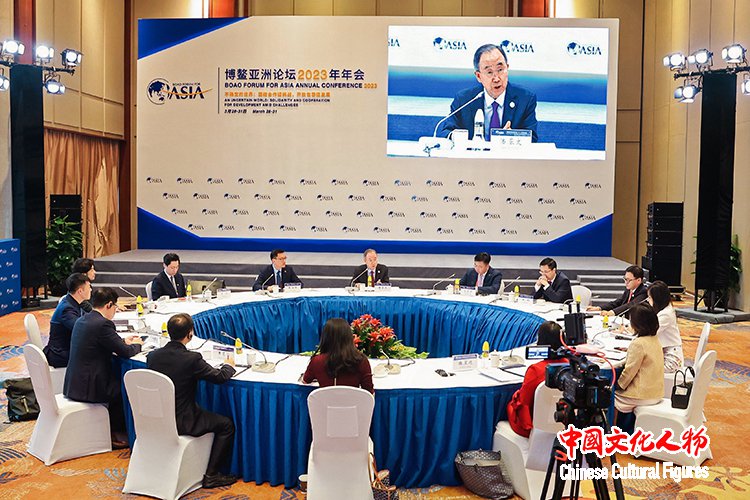
The Youth Roundtable was held during the Boao Forum for Asia (BFA) Annual Conference 2023 in Boao, south China’s Hainan Province, March 30, 2023.
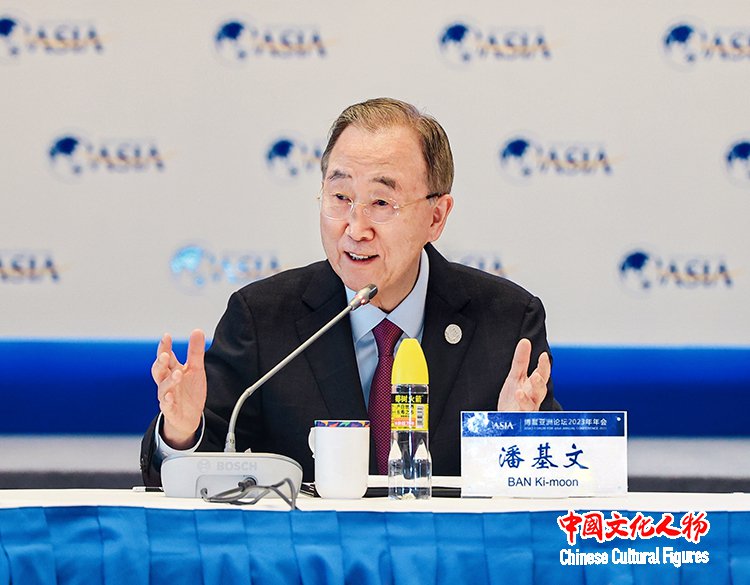
Ban Ki-moon, Chairman of the Boao Forum for Asia (BFA) and the eighth Secretary-General of the United Nations, attends and delivers a speech.
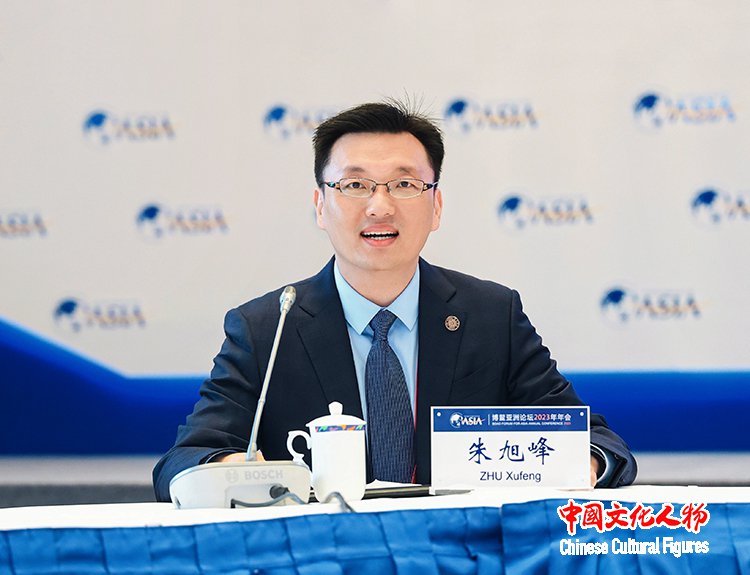
Zhu Xufeng, Dean of the School of Public Policy and Management at Tsinghua University, speaks at the Youth Roundtable during the Boao Forum for Asia (BFA) Annual Conference 2023.

Ma Hongman, a well-known financial host, speaks at the Youth Roundtable during the Boao Forum for Asia (BFA) Annual Conference 2023.
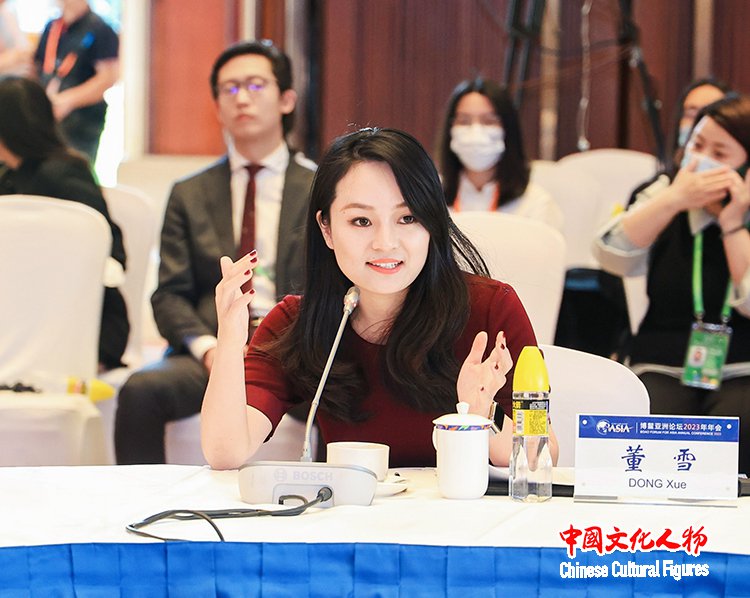
Dong Xue, reporter and bilingual host of CGTN English Channel, presides over the session.
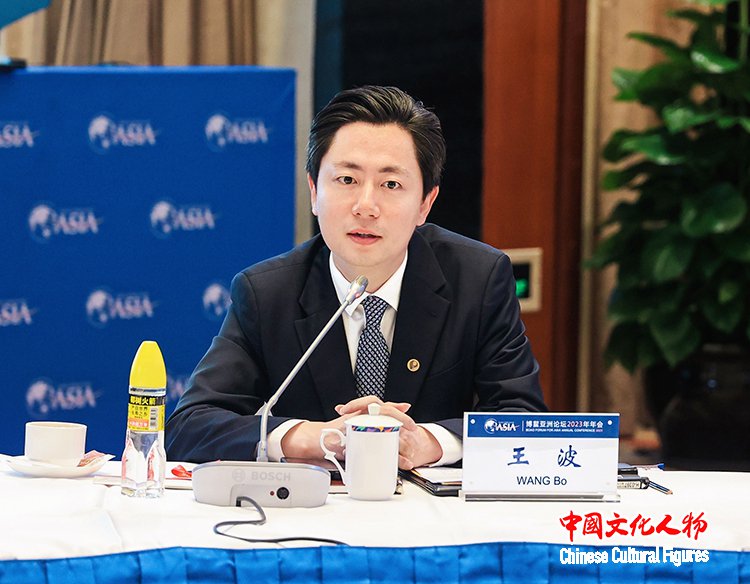
Wang Bo, Chairman of Poly Culture Group, speaks at the Youth Roundtable during the Boao Forum for Asia (BFA) Annual Conference 2023.
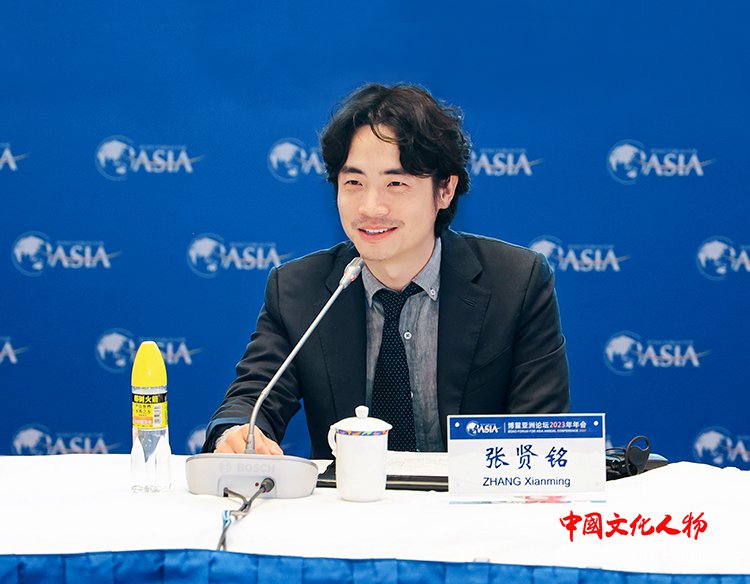
Zhang Xianming, General Manager of Broad Core Digital Technology, speaks at the Youth Roundtable during the Boao Forum for Asia (BFA) Annual Conference 2023.
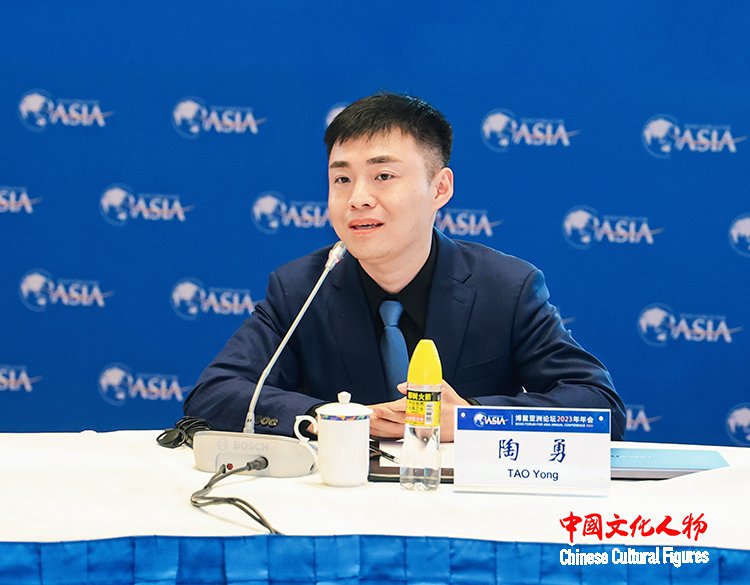
Tao Yong, a professor at Beijing Chaoyang Hospital affiliated with Capital Medical University, speaks at the Youth Roundtable during the Boao Forum for Asia (BFA) Annual Conference 2023.
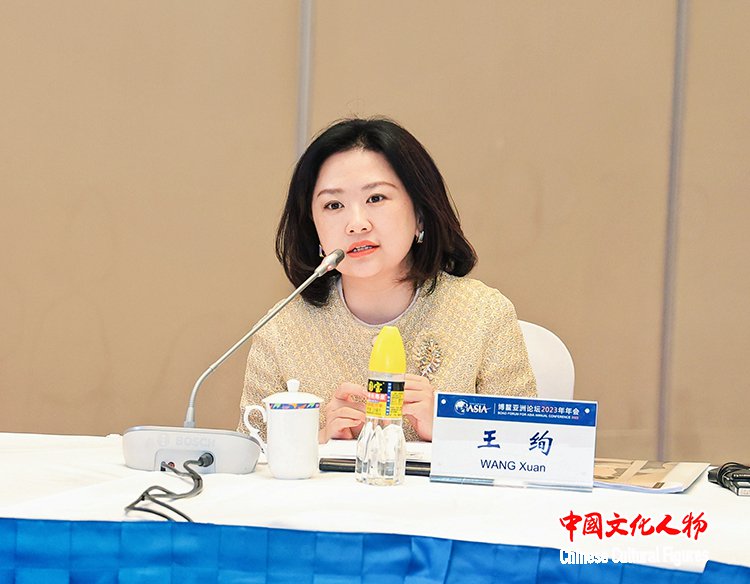
Wang Xuan, a partner of Deloitte China, speaks at the Youth Roundtable during the Boao Forum for Asia (BFA) Annual Conference 2023.
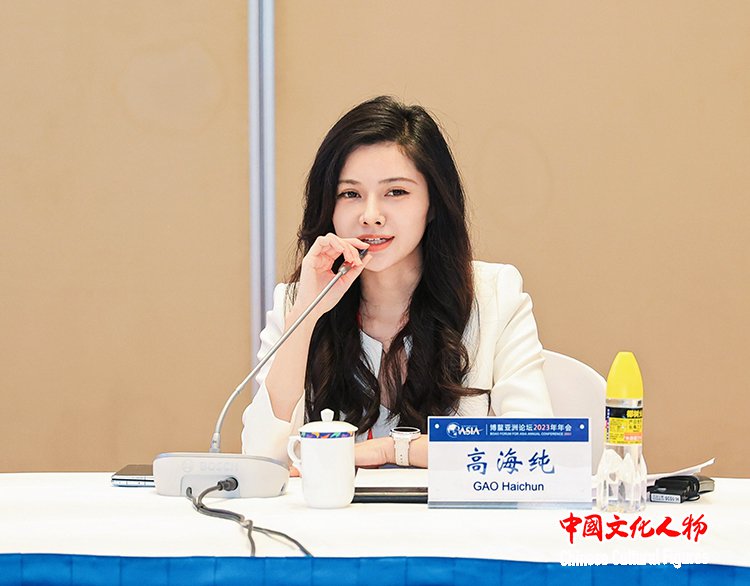
Gao Haichun, President of Jiangsu Trina Solar Smart Distributed Energy, speaks at the Youth Roundtable during the Boao Forum for Asia (BFA) Annual Conference 2023.
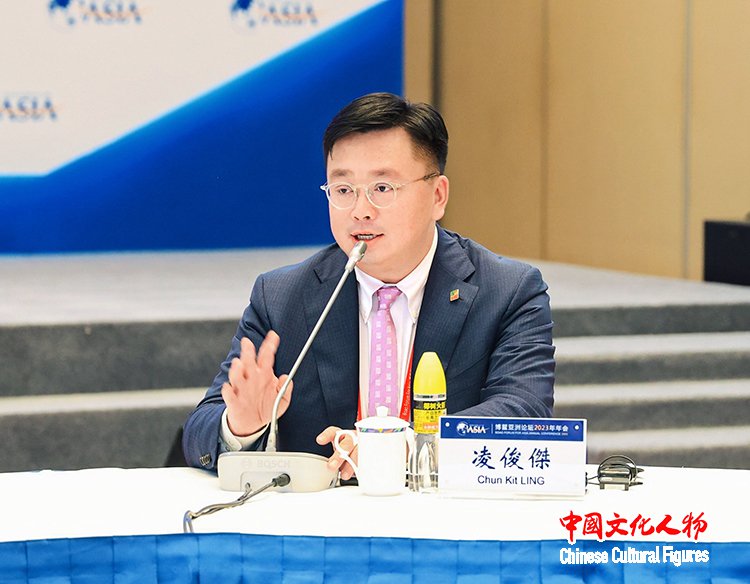
Chun Kit Ling, Chairman of The Y. Elites Association, speaks at the Youth Roundtable during the Boao Forum for Asia (BFA) Annual Conference 2023.
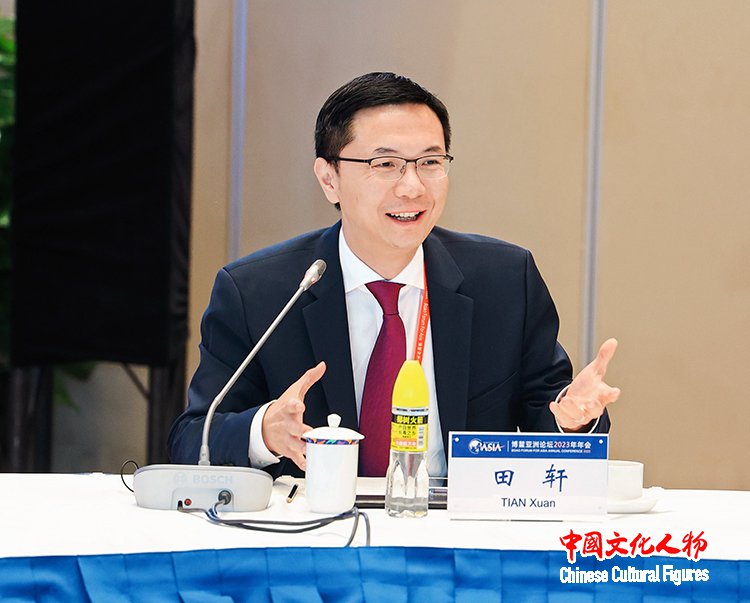
Tian Xuan, associate dean of the PBC School of Finance at Tsinghua University, speaks at the Youth Roundtable during the Boao Forum for Asia (BFA) Annual Conference 2023.
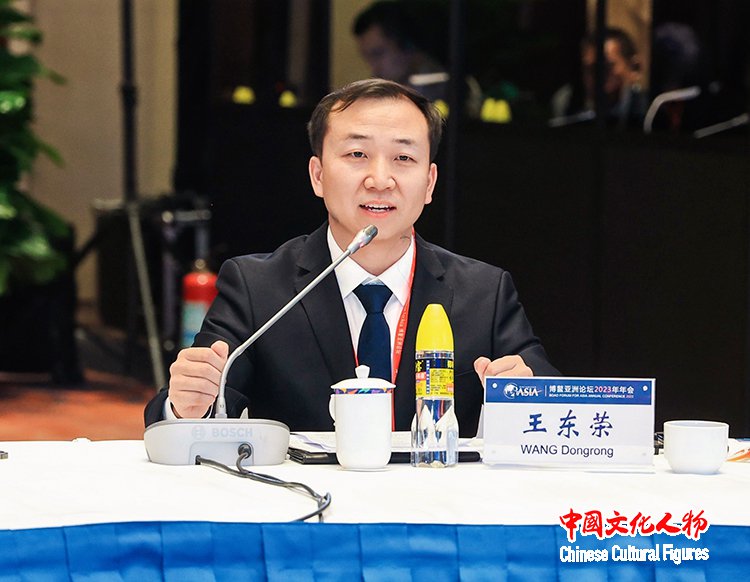
Wang Dongrong, a chief scientist of Shenzhen Dongrong Biotechnology, speaks at the Youth Roundtable during the Boao Forum for Asia (BFA) Annual Conference 2023.
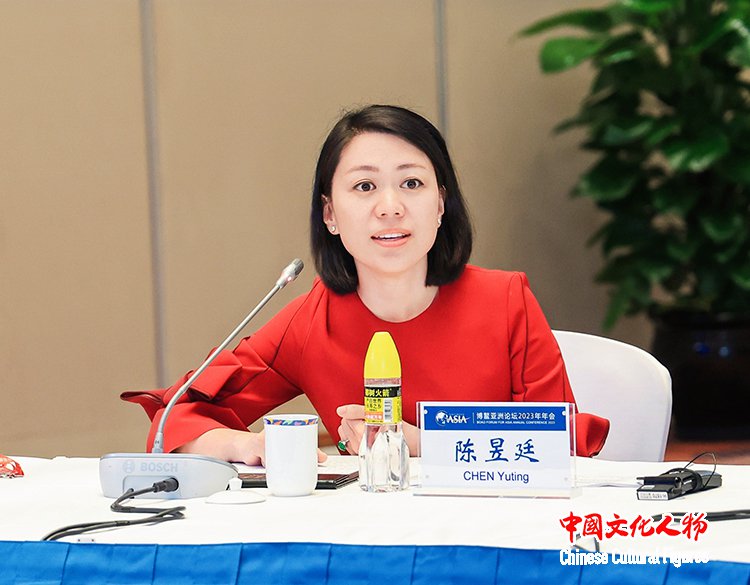
Chen Yuting, Chairperson of Golden Eagle Group China, speaks at the Youth Roundtable during the Boao Forum for Asia (BFA) Annual Conference 2023.
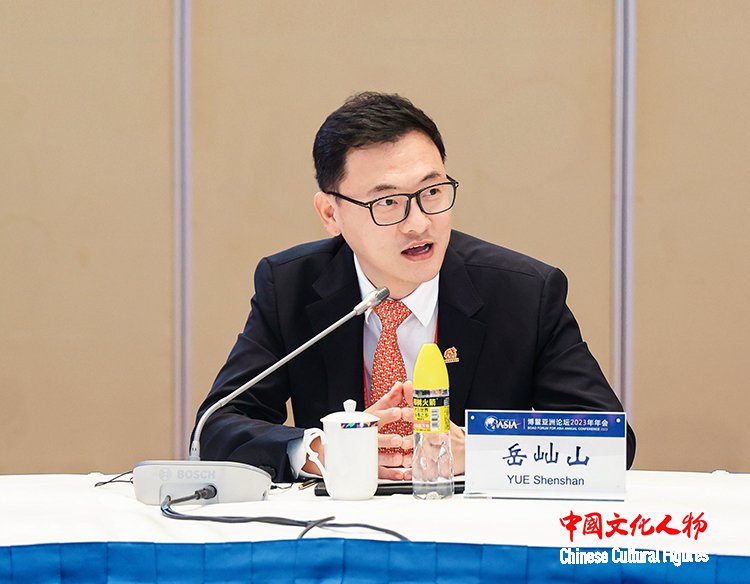
Yue Shenshan, a senior partner of Beijing Yuecheng Law Firm, speaks at the Youth Roundtable during the Boao Forum for Asia (BFA) Annual Conference 2023.
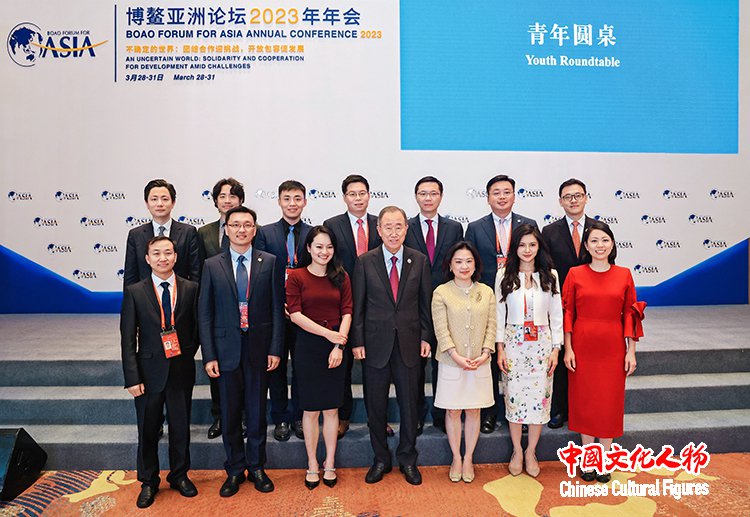
Ki-moon, Chairman of the Boao Forum for Asia (BFA) and the eighth Secretary-General of the United Nations, and Dong Xue, reporter and bilingual host of CGTN English Channel, take a group photo with the delegates attending the Youth Roundtable during the Boao Forum for Asia (BFA) Annual Conference 2023.
Chinese Cultural Figures (Reporter: Ma Jiangping, Zhao Jianhua) On March 30, the Youth Roundtable during the Boao Forum for Asia (BFA) Annual Conference 2023 was held in Boao, south China’s Hainan Province. Ban Ki-moon, Chairman of the Boao Forum for Asia (BFA) and the eighth Secretary-General of the United Nations, attended and delivered a speech. Zhu Xufeng, Dean of the School of Public Policy and Management at Tsinghua University, Tian Xuan, associate dean of the PBC School of Finance at Tsinghua University, Tao Yong, a professor at Beijing Chaoyang Hospital affiliated with Capital Medical University, Chen Yuting, Chairperson of Golden Eagle Group China, Gao Haichun, President of Jiangsu Trina Solar Smart Distributed Energy, Wang Bo, Chairman of Poly Culture Group, Yue Shenshan, a senior partner of Beijing Yuecheng Law Firm, Ma Hongman, a well-known financial host, Wang Dongrong, a chief scientist of Shenzhen Dongrong Biotechnology, Wang Xuan, a partner of Deloitte China, Zhang Xianming, General Manager of Broad Core Digital Technology, Chun Kit Ling, Chairman of The Y. Elites Association, and other participants discussed with young talents and leading figures from different fields how young people should cope with the challenges of the times. Dong Xue, reporter and bilingual host of CGTN English Channel, presided over the session.
Young people are the most active and energetic force in meeting development and challenges, and it is also an important driving force to promote the UN 2030 Agenda for Sustainable Development. In the great changes after the global epidemic, the world has once again entered a stage of rapid development. At the same time, various unstable and uncertain factors are increasing, structural employment pressure is increasing, and many problems and challenges brought about by unbalanced development are coming one after another. This roundtable discussed how young people can actively respond to challenges in the process of their own development and growth, and at the same time contribute wisdom and build consensus for sustainable development.
In his speech, Ban Ki-moon, Chairman of the Boao Forum for Asia (BFA) and the eighth Secretary-General of the United Nations, introduced three major events during his tenure as Secretary-General of the United Nations: promoting global climate change governance, gender equality, and empowering young people. He encouraged young people to have a global perspective, set lofty goals and be down-to-earth, and play a bigger and more active role when the world is increasingly plagued by complexity and uncertainty.
Gao Haichun, President of Jiangsu Trina Solar Smart Distributed Energy, said in his speech that we are very lucky to live in an era and a country enjoying peace and rapid development, and have not experienced systemic risks such as war and the Great Depression. After the epidemic, global systemic risks have brought more and more uncertainties. There are signs of economic recovery, but it will take a long time to fully recover.
Tao Yong, a professor at Beijing Chaoyang Hospital affiliated with Capital Medical University, said in his speech that today's medical industry is facing a major challenge. People's health awareness is improving, their demand is increasing, and the aging population is deepening. The demand for disease prevention and early diagnosis and treatment is increasing geometrically. For young doctors, they should consciously undertake the mission of the times, change the existing "one-to-one" medical treatment mode, and create a new medical mode to meet the needs of this era with the help of more scientific and technological means and information and communication technologies.
Tian Xuan, delegate to the National People’s Congress (NPC) and associate dean of the PBC School of Finance at Tsinghua University, introduced the study and life of college students during the three-year epidemic. He said that as the university was pushed online, students were engaged in online learning during the four college years, with three years at home or in the dormitory, with no social activities and no community activities. After the epidemic, they need to face three major challenges, first is the psychological challenge of returning to society; Second is economic challenges, many students face difficulties in finding jobs after graduation; Third, they have to meet the challenges brought by the development of artificial intelligence and other technologies.
Zhu Xufeng, Dean of the School of Public Policy and Management at Tsinghua University, said in his speech that we are faced with two major situations at home and abroad today, one is the unprecedented changes in a hundred years, and the other is the strategic overall situation of the great rejuvenation of the Chinese nation. We young people should not only keep up with this era but also actively promote China's modernization and promote the exchange of culture and governance experience between China and the West. Young talents should actively participate in the construction and reform of the global governance system. The cultivation of more outstanding young talents who understand Chinese governance and global governance and make important contributions to the modernization and internationalization of the whole world is the world responsibility that public administration majors should have, and it is also the main goal of personnel training.
Ma Hongman, a well-known financial host, said in his speech that every era will have different challenges, and the life process itself will face various challenges. Two elements can not be ignored in the challenges faced by young people at present, the first is the fluctuation of the economic cycle, and the second is the confidence of private enterprises. Private enterprises are willing to take greater risks and expand investment, so young people will naturally get employment and development opportunities, and challenges will be solved easily.
Wang Dongrong, a chief scientist of Shenzhen Dongrong Biotechnology, said in his speech that the epidemic has brought many challenges to the real economy, especially manufacturing enterprises, and the whole employment situation is still not optimistic. At the same time, some people are lying flat, which is the biggest problem. We call this problem ideal numbness and blindness of thought. We should face it squarely and find new methods and paths to solve the problem.
In her speech, Wang Xuan, a partner of Deloitte China, analyzed the characteristics and difficulties faced by Generation Z and millennials and hoped that society could give these young people more opportunities and truly empower them so that they could not only participate in change but also lead some projects. We should innovate a mix of ways and means of working and give them a certain degree of freedom to have enough time to take care of themselves physically and mentally, their children and families, etc.
Chen Yuting, Chairperson of Golden Eagle Group China, said in his speech that in today's world, countries have fully understood the importance of education, but their understanding of the role of education in different stages of life is different. She called on young people to act together, care about early childhood education, and use the transformative power of education to help the next generation release their potential, improve their lives and meet the challenges of the times together.
Yue Shenshan, a senior partner of Beijing Yuecheng Law Firm, interpreted the contradiction between the difficulty of enterprise recruitment and the difficulty of young people's employment. He believes that when young people are employed and just join the work, there is a certain gap between the expectations of wages and jobs and the reality. If it is not solved well, it is not a good thing for enterprises or employees. As educators, before students leave school, they can be given more employment guidance, so that they can have more stable expectations in line with reality.
Chun Kit Ling, Chairman of The Y. Elites Association, said in his speech that Hong Kong is a bridge connecting the country and the world, and young people in Hong Kong have an international perspective, which not only plays an important role but also has the greatest advantages. After the epidemic, we face many challenges, but there are also many new opportunities. The younger generation should seize the opportunity, learn more about the motherland and integrate into the overall situation of national development, find their position in the changing and unchanging situations, exercise their skills, sharpen their will, and tell China’s story well on an international platform.
Wang Bo, Chairman of Poly Culture Group, said in his speech that Poly Culture is a special central enterprise and the only cultural industry with the whole industrial chain managed by the State-owned Assets Supervision and Administration Commission of the State Council. At present, it has two platforms, one is Poly Auction, a Chinese art trading platform, and the other is Poly Theatre, a Chinese performance stage, including Poly Studios. Because these industries are all offline, the three-year epidemic has posed a great challenge to us. As a state-owned enterprise, it also shows our spirit of responsibility, especially on the issue of layoffs. We have not laid off employees because of the epidemic, and we have experienced double pressures. He hoped that young people would strengthen their studies, improve their ability to reflect and think, have the courage of self-revolution and self-correction, and work harder in the new era.
Zhang Xianming, General Manager of Broad Core Digital Technology, expressed his views and concerns in combination with the development status of artificial intelligence. He said that the future is an eternal economy. After AI manages our city, he will turn in the same economic model across generations, maybe ten or twenty generations. Recently, many people in the scientific and technological community said that it is necessary to manage and control AI and control artificial intelligence. This control is not to prevent the development of artificial intelligence but to better understand what artificial intelligence is.
(Editor: Zhang Yan, Liu Sheng)
 特别报道
特别报道
















